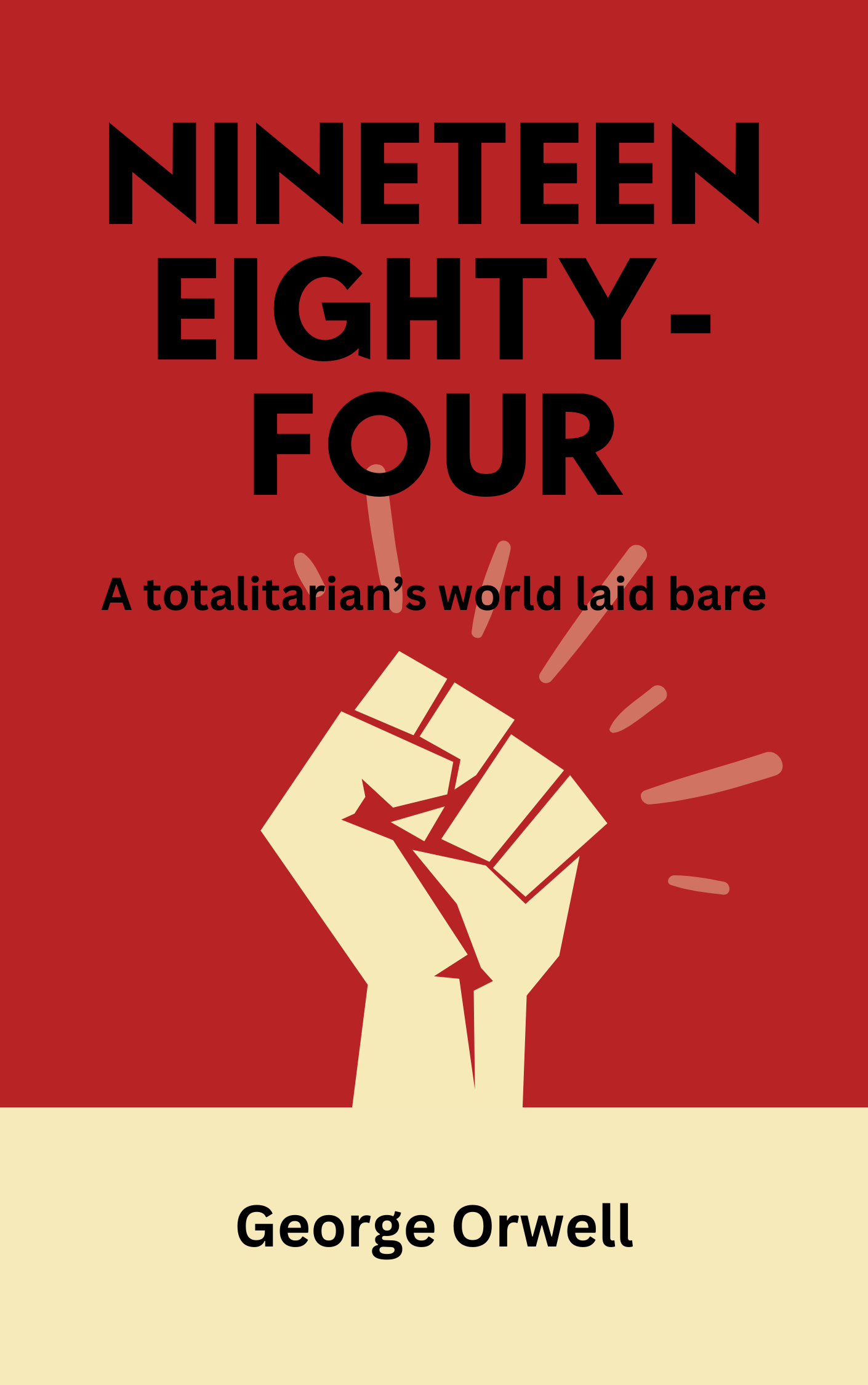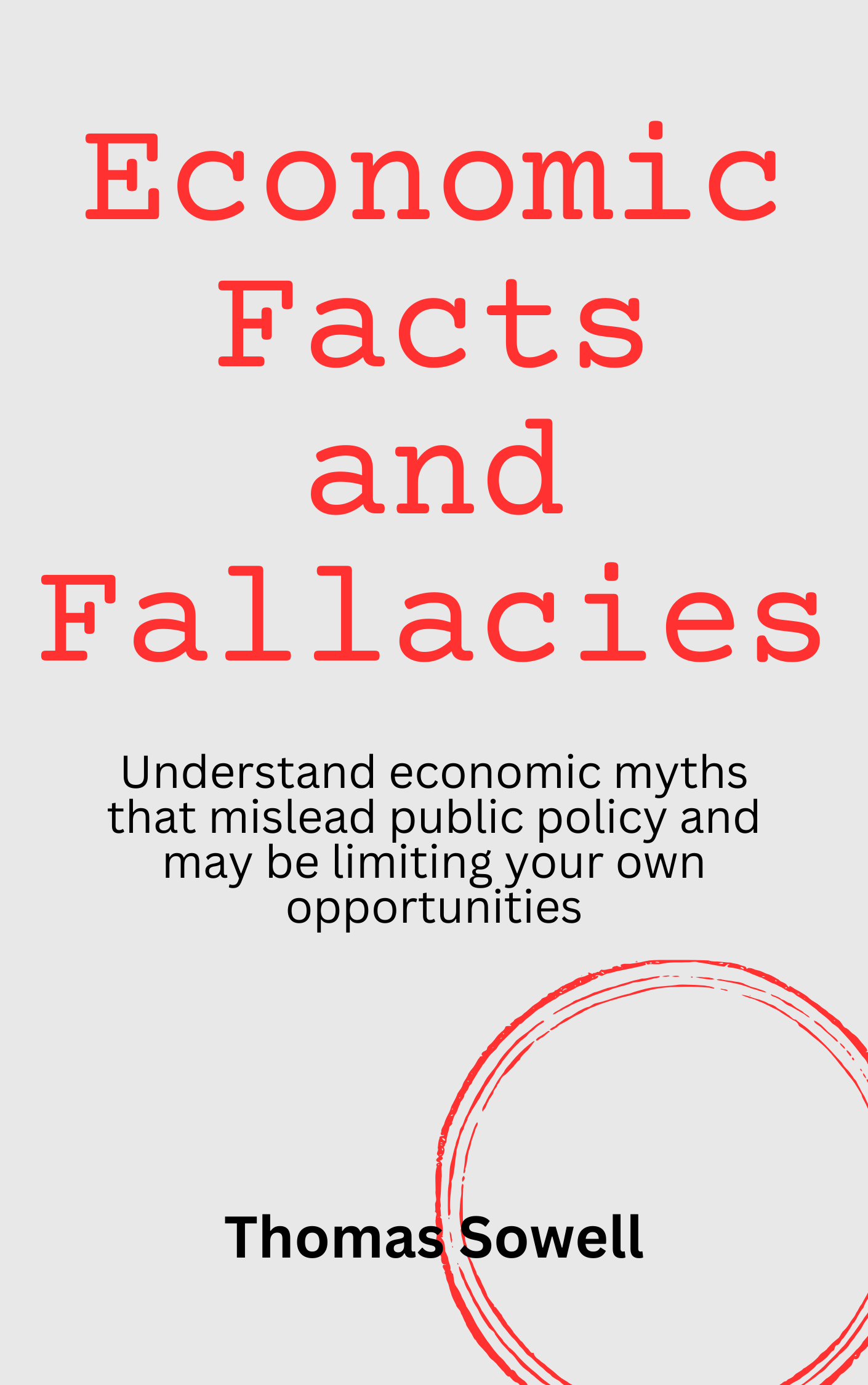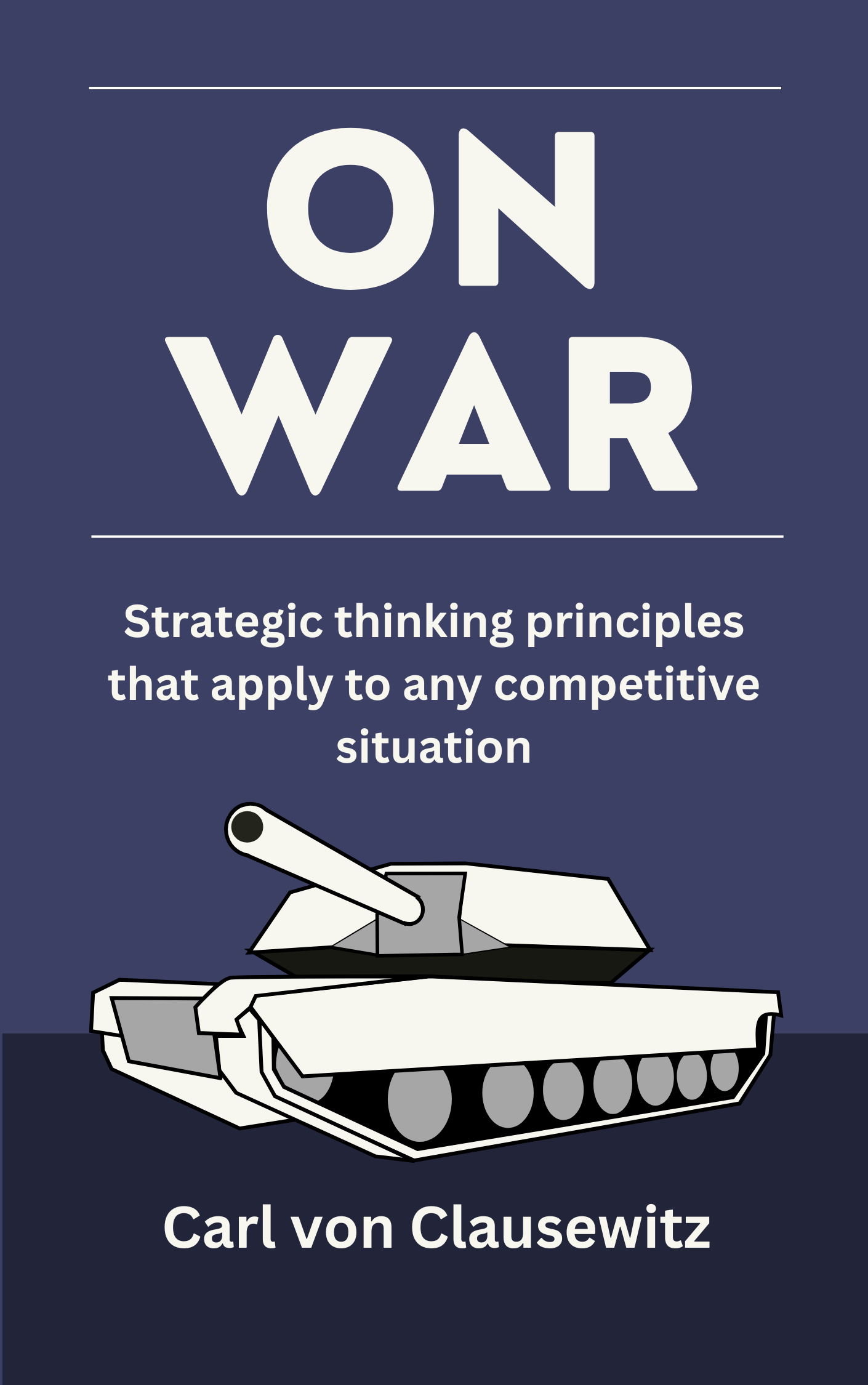Introduction
A dystopian masterpiece that serves as a compelling warning for the human race. Step into this haunting world where the all-powerful Party, under the watchful eye of it’s leader, the Big Brother, controls a society filled with conformity, deception, and twisted truths.
As we leafed through the pages of this timeless book, a thought occurred to us: "The best books are those that tell you what you know already." These words echoed in our minds as we delved into George Orwell's 1984 just like the character of Winston Smith.
Drawing from his own experiences, having served as an Imperial policeman in Burma and actively participated in the Spanish Civil War, Orwell had witnessed first-hand the profound impact of governments exercising complete control. His role as a journalist during World War II brought him to Spain, Russia, and Germany, where he observed the terrifying consequences of authoritarian rule both directly and indirectly.
This led to the birth of Nineteen Eighty-Four. It was published in 1949 when the world was still peeling back the layers, uncovering the mysteries of the two major oppressive social systems – Stalin’s Soviet regime and Nazi Germany. The masterpiece served as a warning to Western nations, urging them to resist the seductive pull of prevailing communist ideologies or equally, muscular liberalism. Orwell believed that unchecked socialism could potentially transform into a system of systematic oppression within the next 35 years.
To comprehend the dangers of authoritarianism, let's explore the crucial themes of Nineteen Eighty-Four.
Total surveillance: Omnipresent, scrutinizing gaze
Lies, propaganda, everywhere!
Winston toils tirelessly at Minitrue, the Ministry of Truth, a puppeteer manipulating the threads of news, entertainment, education, and the arts. His duty is not just rewriting history but reimagining it entirely to align with the Party's ever-shifting narrative. In the aftermath of his revisions, he sends the discarded truth into the memory hole—a fiery abyss where inconvenient facts vanish from the collective human consciousness – burned to ashes.
Yet, the past has a stubborn way of resurfacing. In the late 1960s, the Party orchestrated a chilling purge of the original Revolution leaders—Jones, Aaronson, and Rutherford. They confessed, facing execution. Years later, Winston stumbles upon a forgotten article, an explosive revelation that exposes their exoneration. The confessions, obtained through torture, were nothing but lies. Despite Winston's act of destroying this damning evidence, the memory of the incident haunts him. It remains a lasting mark on Winston's mind, a quiet reminder of the lies within the Party's influence.
In the rundown canteen, Winston shares a simple lunch with Syme, his colleague responsible for finalizing Newspeak, the Party's official language. Newspeak aims to strip away words, making thoughtcrime impossible. The Party plans to rewrite all literature, abolish "freedom," and replace independent thinking with orthodoxy. Syme accuses Winston of clinging to Oldspeak and outdated ideas.
Apart from the Ministry of Truth, there's the Ministry of Peace, handling the ongoing wars involving Oceania, Eurasia, and Eastasia. There's also the Ministry of Plenty, overseeing food, goods, and industry. Lastly, the Ministry of Love takes charge of people's surveillance, along with interrogating and torturing those suspected of thoughtcrimes.
The next section is going to delve more into the life in Oceania.
Existence of life within the boundaries of Oceania
In a striking irony, the Party portrays Oceania as a utopia, a land of abundance. However, the stark truth reveals a life marred by scarcity and deception. Despite the Party's vision of an ideal society, its members, short and ugly, endure a meagre existence in dilapidated homes, surviving on slimy stews. Rationed essentials challenge the proclaimed plenty.
Daily life unfolds with rigid control. The "Two Minutes Hate" program, seemingly fostering unity, targets Emmanuel Goldstein who once was a revolutionary hero and later turned into the leader of the underground organization “the Brotherhood” and of Eurasia, the current enemy country. The hate program intends at erasing the ironic memory that Eurasia, now the enemy, was once an ally.
Party-sanctioned entertainment includes show trials and public executions, a cruel irony in a supposedly free world. Despite official discouragement, an ironic tolerance permits liaisons with prole prostitutes, a secretive outlet for suppressed desires. The irony beneath the Party's facade exposes a world of deprivation and contradiction.
Was Oceania always like this? Let’s see.
Seeking the past
Winston clings to the hope found in the proles, the vast majority of Oceania's population. Faraway from the Party's boastful claims of liberating them from poverty, the bitter truth reveals their continued hardship. They drown the pain from hard labour in lottery, movies, football and beer.
To see their lives with his own eyes, he visited one of their neighborhoods. To him, the people appeared dull but not inhuman as claimed by the Party. Defying the Party's disdain for the old and beautiful, Winston daringly acquires a forbidden glass paperweight from Mr. Charrington's antiquated shop. The junk-shop owner unveils a room filled with antique furniture and pictures, igniting a deep nostalgia for the past within Winston. A steel engraving featuring a now-ruined church captures his attention, a stark reminder of the Party's reshaping of surviving churches for alternative uses. Despite this, Mr. Charrington's recitation of a nursery rhyme about London's church bells triggers an illusion in Winston, making him believe he hears them.
While on the street, Winston spots a girl from the Ministry's Fiction Department, instilling a deep suspicion that she is a Thought Police agent, surveilling his every move.
Who is the girl? Is she really a Thought Police agent? Or is she more than what it seems to be?
Love blossoming in the forbidden realm
One day, the girl - Julia slips Winston a note that says, "I love you." They risk their lives to meet in the woods away from microphones and telescreens. Julia admits she can tell Winston is against the Party just by looking at him. Winston appreciates her honesty about sleeping with many Party members, seeing it as a rebellion he supports. He believes their connection, driven by an animalistic spirit, will eventually undermine the Party's power. To Winston, being with Julia is an act of political resistance.
As they spend more time together, Winston learns about Julia, a 26-year-old who hates the Party and breaks its rules. Despite her rebellion, she doesn't oppose the Party's doctrines, living only for the present. Winston grows fond of her. He rents a room above Mr. Charrington's shop for their private moments. They enjoy their time together, breaking the once-granted privacy that is now a crime. Suddenly, a rat startles Winston, and he confesses to Julia that he fears those vermin the most.
For Winston, freedom means more than just physical expression; it's about thinking and expressing true beliefs. He writes in his diary, "Freedom is the freedom to say that two plus two make four. If that is granted, all else follows." Dying while hating the Party, to him, is true freedom.
In the midst of their hidden romance, a broader idea emerges: true freedom enables expressing facts and lies, allowing people to voice thoughts, right or wrong. Without these basic freedoms, others lose their meaning, creating a society where people can't fully be themselves.
Will the love of Winston and Julia find their forbidden freedom in the land of Oceania?
The dawn of truth’s realization
During the peak of Hate Week's climax, amidst the frenzied masses, the startling news breaks: Eastasia, once an ally, is now the enemy, and Eurasia, the former foe, is now an ally. The crowd, seemingly undisturbed, seamlessly shifts their hatred focus. This sudden twist throws the employees at Ministry of truth into a colossal task – rewriting all articles, history books, pamphlets, and posters to align with the new narrative that Oceania has perennially been at war with Eastasia and allied with Eurasia.
Winston, like his colleagues, toils relentlessly, driven to exhaustion, erasing and rewriting the past records. Simultaneously, party leader O’Brien reaches out to Winston and Julia, recruiting them for the Brotherhood, an opposition group whose members remain anonymous, fighting for a distant ideal. In their secret hideout, Winston reads to Julia from a book by Goldstein, the author who reveals the perpetual cycle of revolutions in human history.
According to Goldstein, since 1900, modern socialist ideologies shifted their focus. Rather than pursuing liberty and equality, they aimed to maintain oppression and inequality, serving the interests of the ruling class. The book by Goldstein further explains how some governments hold all the power. By the 1940s, with the Industrial Revolution, people could have ended hunger and poverty. The dream of true Utopian Socialism could have come true but instead, oppressive leaders like Stalin and Hitler rose giving rise to Stalinist Russia and Nazi Germany.
Humans, wanting more power, created Ingsoc, a system to keep control. All three world super-powers are like this. They fight over tiny inconsequential pieces of land but never truly win or lose. These endless wars keep people angry and focused, even though nobody wins. In these countries, war is like peace because it generates the conditions needed to keep their populations under control. Winston was familiar with the Party's oppressive tactics. However, he finds solace in the confirmation of a truth he thought he might be losing touch with. He believes in the eventual uprising of the proles who are untouched by deceit and hate to reshape the world with genuine humanity.
In the midst of this revelation, Winston and Julia's hope is shattered as they are arrested by the police. Old Charrington is a Thought Police spy. He betrayed them. In a simple twist, their dreams shatter into impending doom.
What will happen to Winston and Julia? Let’s find out.
Will two plus two be equal to five?
In the cold cell of the Ministry of Love, all that Winston can think about is when he'll finally get something to eat, what the heck happened to Julia, and whether O'Brien will actually come through for him. It's like a revolving door of tortured souls being brought in and out in the brightly lit rooms as guards shuffle them around. Amid relentless blows, Winston's consciousness fades in and out. All this torture was witnessed by O’ Brien - Winston’s suppossed Messiah. Through endless interrogations, Winston reluctantly signs false confessions. The anxiety peaks as O'Brien, the Inner Party member, administers electroshocks, attributing Winston's suffering to mental derangement. Dismissing Winston's ideas about memory, O'Brien emphasizes the Party's control over the past through its records. For O’Brien, reality exists only in the Party's immortal collective mind and not in the thoughts of individuals. Subjected to unrelenting electroshocks, Winston must sincerely accept that two and two make five if the Party commands it.
Will Winston surrender to the whims of the Party? Will he betray Julia or fight for his love? Are there any more secrets to be revealed?
Fostering propaganda through brainwashing
Chapter 11
Details coming soon.
Summary
The Machinery of Oppression: Orwell paints a chilling portrait of Oceania, a totalitarian super state governed by the omnipresent Big Brother. Its oppressive machinery relies heavily on surveillance, with telescreens monitoring every move and microphones catching every whisper. The Thought Police enforce absolute conformity, ruthlessly eliminating any divergence from the Party's dictated reality. Information is tightly controlled through the Ministry of Truth, which rewrites history and manufactures news to serve the regime's agenda. Language itself is warped through Newspeak, a vocabulary designed to limit thought and expression.
Living in the Shadow of Big Brother: The citizens of Oceania exist in a perpetual state of fear and uncertainty. Economically, they are kept at bare minimum level, constantly manipulated through rationing and shortages. Politically, they are mere puppets in the Party's machine, denied any form of participation or dissent. Mentally, they are bombarded with propaganda and doublethink, forced to twist their own minds to fit the Party's mold. Physically, they are subject to constant surveillance and the ever-present threat of vaporization – the ultimate punishment for disloyalty.
A Stark Warning for Our Times: "1984" stands as a stark and timeless warning against the dangers of totalitarianism and the insidious encroachment of state power. It reminds us that the erosion of individual freedoms, the manipulation of truth, and the control of information are not distant dystopian nightmares, but real threats that can creep up in seemingly ordinary societies. Orwell's chilling vision compels us to remain vigilant, to question authority, and to cherish the precious freedoms that make us truly human.
By understanding the chilling mechanisms of these fictional authoritarian states, we can better recognize and resist their potential manifestations in our own world. "1984" serves as a powerful call to action, urging us to safeguard our liberties and build a future where individual rights and freedoms are never taken for granted.











